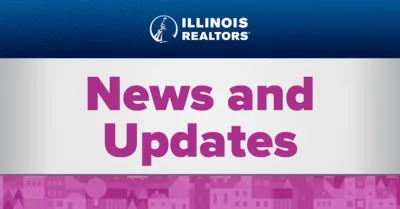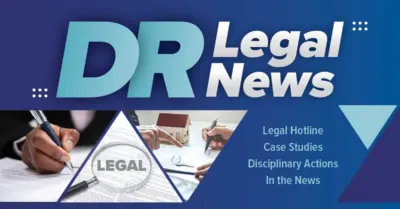Research and analysis by Christine Self,
Sorling Northrup Attorneys
Illinois Business Brokers Act
The Illinois Business Brokers Act of 19951 (“IIBBA”), as amended, requires those people who engage in brokering the sales of non-securities type businesses register with the Illinois Secretary of State’s office and pay a required fee before engaging in such activity. Annual renewal of the registration and fee are required. There are also disclosure and record-keeping requirements for registrants.
Licensed real estate salespeople and brokers may be called upon to assist with the sale of a business that fits within the parameters of the IBBA, so it is important to analyze whether or not they must register with the Secretary of State’s office to ensure compliance. If the sale of the business is one in which an interest in real estate is a dominant element in the transaction, then the IBBA does not apply. As a result, the first question to address is whether an interest in real estate is a dominant element in the transaction. The rules under the IBBA define “dominant element” as one in which the interest in real estate is of a dollar value worth at least 50% of the net asset value or purchase price of the business, is an integral part of the transaction, or is the single largest part of the transaction.2 It is worth noting that, if an interest in real estate is a dominant element of the transaction, the person brokering the transaction would need a properly sponsored real estate license.
In addition, according to the rules under the IBBA, one would look to the definition of “real estate” in the Real Estate License Act of 20003 to determine what constitutes an interest in real estate. Of particular interest to these types of transactions, leaseholds are clearly included in that definition.4 If the leasehold being transferred fits any of the criteria set forth under the definition of dominant element, the transaction could be classified as a real estate transaction as opposed to a business transaction. The agent is then covered by his real estate license and would not need to register under the IBBA.
Exemption for Real Estate Licensees
The good news is that the IBBA contains an exemption for licensed real estate brokers and salespeople if they are “primarily engaged in business activities for which a license is required under the [Illinois Real Estate License] Act and who, on an incidental basis, act[ ] as a business broker.”5 The bad news is that the IBBA does not define “incidental basis” in this exemption, therefore potentially leaving you exposed to liability for not complying.
The real estate practitioner must determine whether or not the transaction fits into the category of “incidental basis” when asked to broker a business transaction that does not fit the classification of a real estate transaction. Depending on the real estate licensee’s real estate business, one business transaction might be enough to require registration under the IBBA. Assume the real estate licensee practices on a part-time basis and does an average of two real estate transactions a year. That person may not be able to argue successfully that to do one business brokerage transaction is “incidental” to his real estate business. On the other hand, if the real estate licensee does 50 real estate transactions in a year, he has a better argument that one business brokerage transaction would be incidental to his real estate practice.
If the potential commission is substantial, or there is any question at all as to whether or not it would be incidental, avoid the issue by registering with the Secretary of State’s office and paying the required fee. (http://www.cyberdriveillinois.com/departments/securities/busbroker.html). It is a registration process and not really a licensing procedure. As always, if there is any doubt, consult the advice of an attorney to review the particular facts.
Protection for Real Estate Professionals
It should be noted that your errors and omissions insurance carrier may not provide coverage for business brokerage transactions in which you participate. If you provide such services to your clients, you should check with your agent to see if you are covered. They will likely do a close analysis of not only the transactions for which you seek coverage, but the business knowledge, skills, and experience of the insured before providing coverage. Aside from checking with your insurance professional, you should seek legal advice on whether your transactions are subject to the IBBA if you participate in such business brokerage transactions.
- 815 ILCS 307/10-1 et seq.
- Ill. Admin. Code tit. 14, § 140.51
- 225 ILCS 454/
- 225 ILCS 454/1-10
- 815 ILCS 307-10-80(a)(2)













